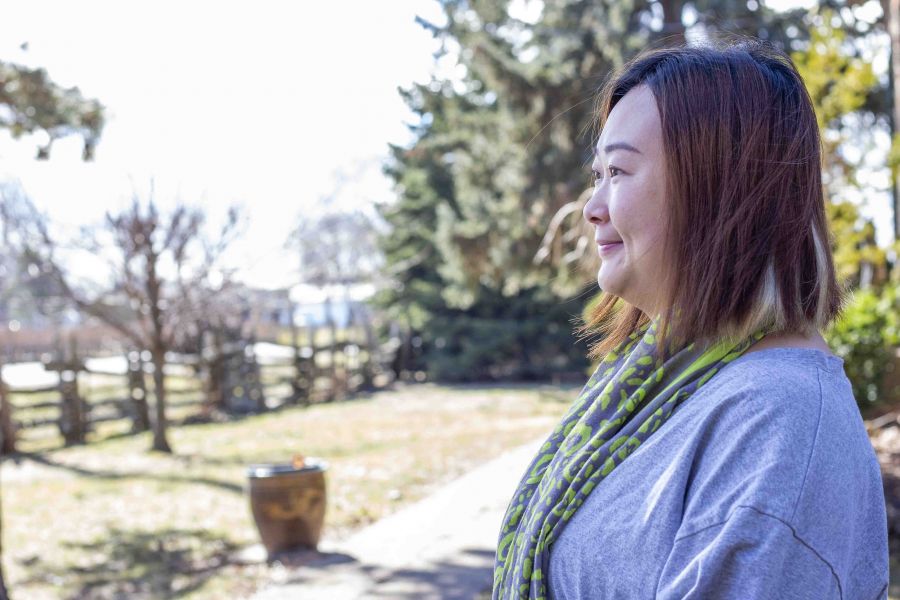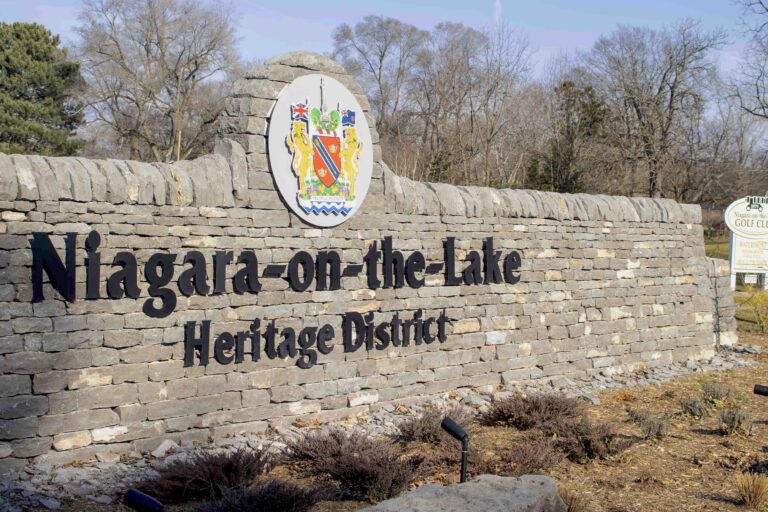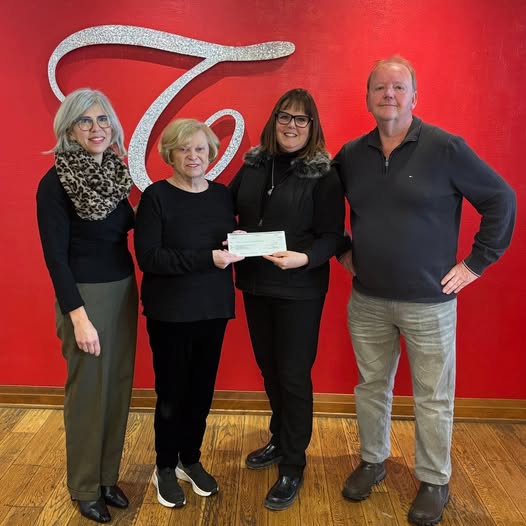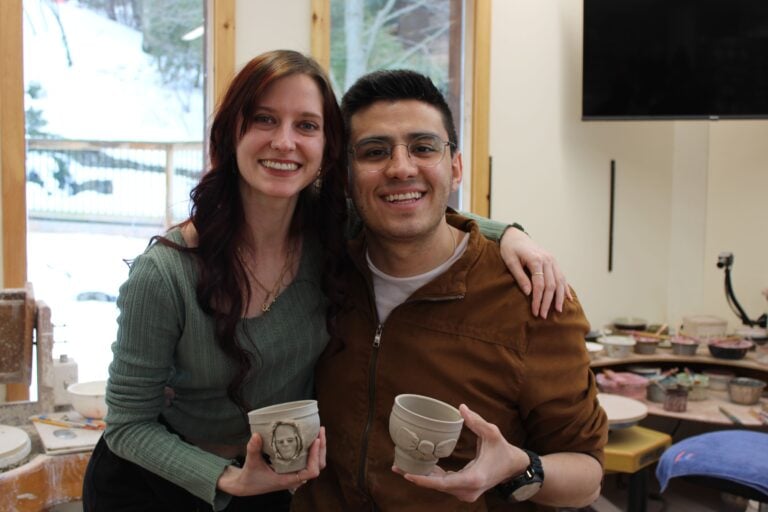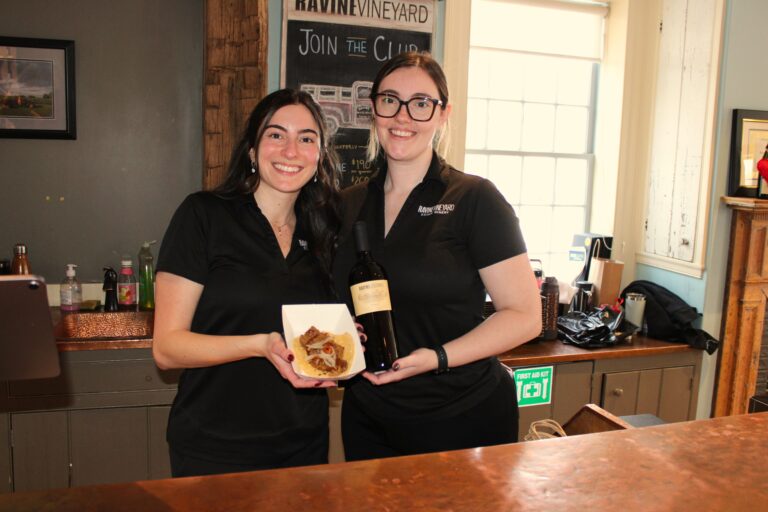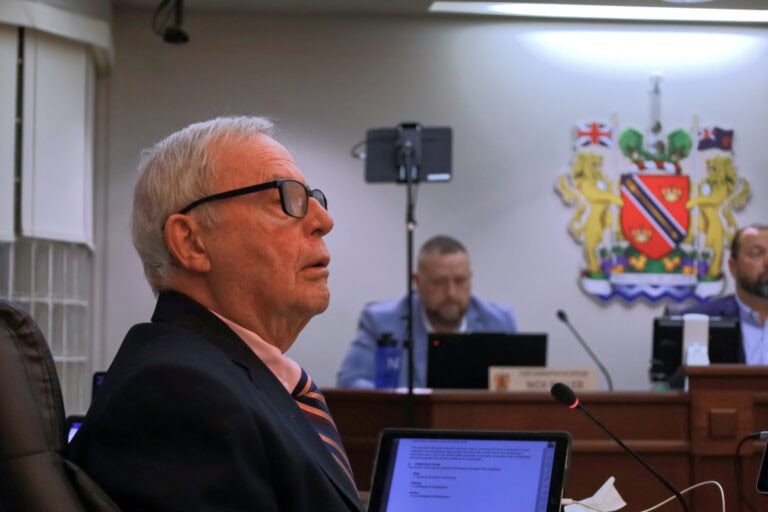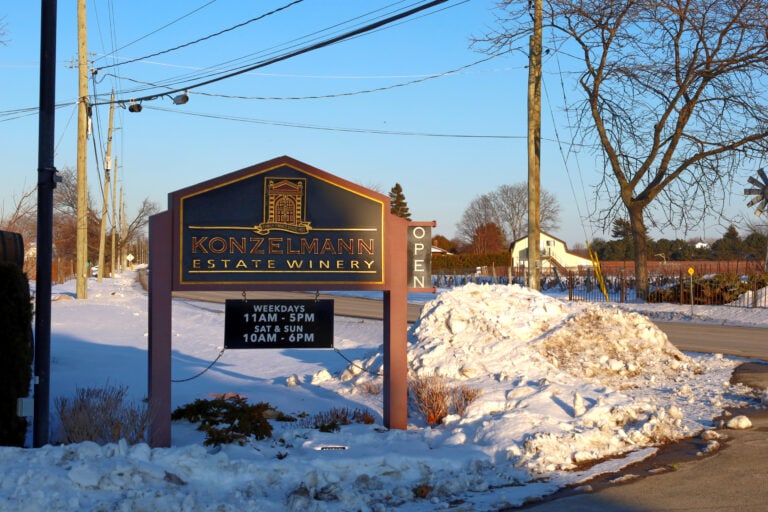Editor’s note: While we celebrate the progress of equality for women around the world, we want to highlight some of the strong, fearless women who have made incredibly tough decisions to protect themselves and their families. This story is about one of Niagara-on-the-Lake’s newest residents, Teresa Wong. A mother of three, Wong fled the formerly democratic state of Hong Kong for the freedom of Canada in December 2021.
___________________
Imagine waking up in two years and Canada is no longer a free, democratic country.
Imagine you’re no longer allowed to criticize the government, once-independent newspapers are being shuttered and state-controlled propaganda is now part of your education system.
For Teresa Wong, a 40-year-old mother of three from Hong Kong, that was the reality for her family.
Wong left Hong Kong in 2021 after two years dealing with the changing state, where people who once enjoyed freedoms we take for granted are now being prosecuted for speaking out.
She’s now living in Niagara-on-the-Lake, thanks to a longstanding friendship with her high school English teacher, Kaspar Pold.
Wong was able to bring two of her young children with her to Canada. Her husband and 10-year-old daughter are still in Hong Kong and plan to move to Canada when they can.
She travelled on a six-month tourist visa, a move she’d been planning since before the pandemic hit in 2020.
A mother's breaking point
Her reason for fleeing Hong Kong was simple. “Everything has changed.”
The breaking point was seeing her children’s education altered, and a growing division between people who supported the Chinese government’s takeover of Hong Kong and those who strongly protest the loss of freedom.
“Before, we were free in Hong Kong. We can talk whatever we want, we can say our ideas out in public, right? But since 2019, especially in 2020, the government controlled the people so fast,” she says in an interview with The Lake Report.
The loss of rights was shocking and swift, she says.
“Can can you imagine, like here in Canada, you can say whatever you want. If something (is) wrong, you can go and strike and speak in public. Suddenly, someone says, 'Oh, the national law comes that you can't say something — if you say that you will go directly in jail.' “
“What would you feel like?” she asked. “You're frightened, right?”
She says it’s especially frightening thinking about her children.
The division in the country is palpable, she says, and it's reaching into the schools.
When China's crackdoown first happened in 2019, Hong Kong citizens took to the streets in droves to protest the new rules.
But Wong says that just created more division and discrimination because, as police arrested citizens, people started to turn their hatred on each other.
She remembers a story from a friend, about a teacher who asked students in a classroom to stand up if their parents worked for the police. The teacher then told the rest of the students to stay clear of those whose parents were affiliated with the police and to ask them why their parents are “doing this to Hong Kong.”
It was a big shock, she says. “It's like something got ruined in the education. I don't want my kids to be educated in that kind of system and that kind of environment again,” Wong says.
So she planned her departure.
Swift totalitarian action
Soon after the the latest crackdown on democracy in Hong Kong, Wong says the Chinese government began to “clean” teachers who were speaking out against the state and attending rallies and protests. Some were forced to quit teaching or to bend to the government's philosophy.
“It actually is like a 180-degree change.”
She says schools need to be free places, so “that teachers and students can talk and discuss.”
“The politics, they should understand both sides, right? And then judge by themselves later on. We can't just say, 'Oh, this one is wrong. You need to memorize it. This is wrong. You can't go on demonstration. You can't say something against the government.' That's the truth of education. Otherwise it is not education, it's like feeding.”
It’s like propaganda or brainwashing, she says, and was “really a big shock.”
At one time, Hong Kong was one of the “most cosmopolitan” cities in the world, but no longer, thanks to the Chinese government's crackdown on society.
She says the government is doing everything it can to silence the views of people who question the state.
The country has also banned free, independent media from operating.
One of the biggest media companies, Apple Daily, was forced to shut down in 2021 after its accounts were frozen and its leaders arrested.
That newspaper was owned by Jimmy Lai, who has a strong Niagara-on-the-Lake connection through his sister Si Wai, who was a major investor and visionary of the town’s hotel industry through Vintage Hotels.
“And Lai is in jail, of course,” Wong says.
Wong was a reader of Lai's newspaper and considers him a great person for speaking out against the government.
“I loved the newspaper because from that newspaper, I can see what I can't see from the others — no matter in a political way or any other ways, they're telling the truth. But unfortunately, we don't have it any more.”
From early days in 2019
When the government first started suppressing democracy in Hong Kong, she says she didn’t attend the protests. She would make her opinions known to people she knew and post some things online, but didn’t want to fight and risk persecution, for the sake of her children, who are now 12, 10 and 6.
She remembers the fear as young people took to the streets and parents getting calls that their teenagers had been arrested for speaking out.
That’s when the division started.
“I know a lot of people split up with families, with friends, only because their mindsets are different, for or against the government,” she says.
“That's not a healthy environment for kids to grow up. When they grow up, through their their life, they need friends, right? They can't be choosing friends because of political viewpoints.”
She says the attitude among many is “black or white. You need to choose. No grey.”
Wong worked in the tourism industry in Hong Kong for 12 years, having studied in Switzerland and graduated in 2006.
She remembers she could have moved anywhere in the world at that time, but chose to go back to Hong Kong because she saw a future there — but no longer.
The loss of freedom and truthful education wasn’t something she was about to let her kids be subjected to.
If her children aren’t able to learn and discuss politics and history honestly, they will know nothing about the truth of Hong Kong and that will have a lasting impact on generations of people, she says.
“And then later on, maybe five or 10 years later, the government will publish a book, some kind of so-called Hong Kong history, that will say something really good, right?”
Now she is taking a personal support worker course in Canada so she can get a full-time job and secure a work visa.
Then, she says, her husband and daughter will be able to move to Canada, too, hopefully by this summer.
Wong says she didn’t have a hard time leaving the country, largely because she used a travel visa and hadn’t been arrested previously for protesting the government.
Others who are known to the government and have been arrested aren’t allowed to leave the country, she says.
Three months in Canada
She says she feels safe in Canada.
“And meanwhile, I'm a bit worried about my husband and my girl there,” she says, noting that cases of COVID-19 have been out of control in the state in recent weeks.
Seeing the Hong Kong government’s reaction to COVID-19 is another thing she finds troubling.
“I can't imagine how the most effective, high-efficiency city like Hong Kong, nowadays has become messy like the Third World. People standing outside waiting to get into the hospital for days” and the government reacting slowly to the upsurge.
Talking about International Women’s Day and what it means to her to be an obviously strong woman, she says motherhood made her fierce.
“I think women are powerful, especially once they become a mother. They have the natural right to protect their kids and their family. And then nowadays I think women should be treated as equal as men for any point of view. No matter on career, or for anything else in our society.”
To other women who may be facing situations they want to leave, she offers these words: “Be brave. Nothing is impossible once you start your first step.”
Her NOTL connection
Wong met NOTL resident Kaspar Pold in 1998, while he was teaching English in Hong Kong. Schools there have what they call “native” teachers, she explains, in which teachers primarily speak the language they teach.
Pold only taught at her school for two years, but the two kept running into each other and maintained a friendship over time.
He and his late wife lived in Hong Kong until 2005.
Wong says Pold worried about China exercising control over Hong Kong's democracy and offered her his home in Canada.
Eventually, she took him up on the offer and says she loves being in Niagara-on-the-Lake.
“Some areas just remind me of my study life in Switzerland. Lovely people here. Lovely environment.”
Calling on Canada
Wong hopes her travel visa is extended due to the pandemic and that once she gets a work visa, her children can attend school here. As visitors, they are unable to register for classes.
She says she looked for jobs in NOTL’s hotels when she arrived, but found no full-time work in her field.
Wong says one thing the Canadian government could do to help people seeking asylum here is to loosen the immigration laws and allow anyone who is fleeing Hong Kong quick passage to the country, similar to what the U.K. is doing.
“Because a lot of people would like to come,” she says, adding she knows friends who would have liked to have moved to Canada.
“Canada is the first choice but they finally turned to the U.K. because the U.K. has got an easier path to go,” she says.



